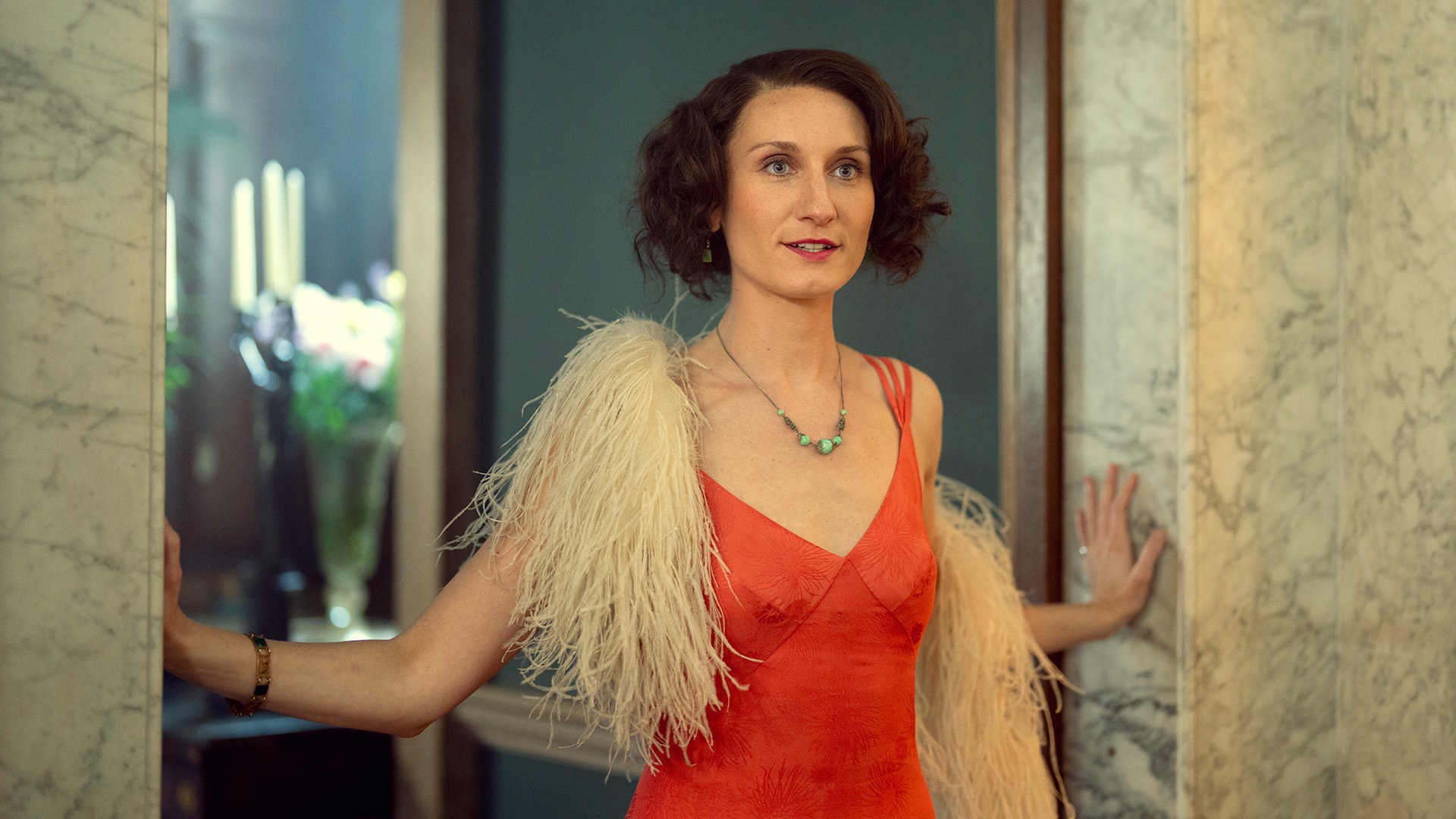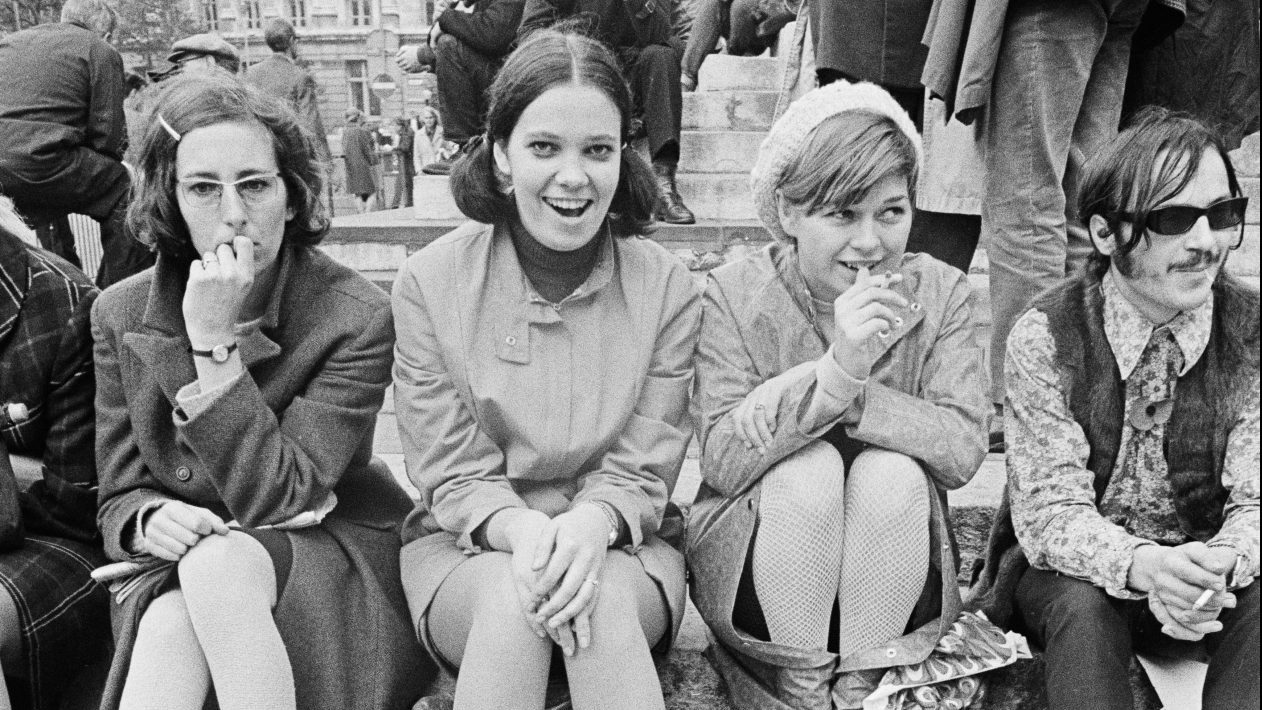There were six of them. They were white, wealthy and good-looking and half of them were outright fascists.
The infamous Mitford sisters first captured the imagination of the British public, historians, and the media in the 1930s and continue to do so today. The last of the girls died in 2014, but they continue to pop up and transfix us from time to time – in Discworld, in Peaky Blinders and now in BritBox’s new six-part drama Outrageous. It’s based on The Mitford Girls, a 2001 biography by Mary S Lovell.
The show is the work of Sarah Williams, who wrote Becoming Jane about the early romantic life of Jane Austen, and focuses on the sisters’ messy love lives and messier politics. It is vibrant, funny and oddly poignant at some points, making for an entertaining watch with brilliant performances from the ensemble cast.
There is no shortage of good source material. Diana was the most fervent political partner, committed to bringing her husband Oswald Mosley’s vision of UK fascism to fruition. One of the youngest sisters, Unity, inveigled her way into Hitler’s inner circle, becoming a rival to Eva Braun in terms of odd devotion to the man. She shot herself in the head when Britain declared war on Germany, but being a Mitford, survived.
On the other side of the spectrum, Jessica – better known as ‘Decca’ – was a staunch communist who eloped with her second cousin Esmond Romilly. He was a nephew of Winston Churchill’s wife Clementine and fought against Franco in the Spanish civil war. Also on the left was Nancy, the acclaimed novelist, who made fun of British fascism in Wigs on the Green.
You can only imagine the family dinners. It all feels very much Downton Abbey with added extremism. I’d love to have seen Maggie Smith’s reaction to one of Lord Grantham’s daughters shacking up with a fascist in the years after world war one.
But away from our endless fascination with the upper class, perhaps what gives the Motfords added relevance in 2025 is what you do when someone in your family advocates for a racist, fascist state
When I first found out about the Mitfords through reading Nancy’s The Pursuit of Love, which I adore and then about Oswald Mosley, whom I loathe, I was wary. Was it really wise, as some have attempted, to excuse the behaviour of Diana and Unity as just the foibles of society girls led astray by manipulative men, even when they were every bit as unrepentant fascists as Hitler and Mosley?
Nancy Mitford has the right idea. A dedicated anti-fascist, she told MI5 to detain Diana when world war two broke out, writing “she is a ruthless and shrewd egotist, a devoted fascist and admirer of Hitler, and sincerely desires the downfall of England and democracy in general.” Diana was detained just before her 30th birthday and taken to Holloway Prison. She and Mosley were eventually released in late 1943 under house arrest, but years of confinement had hardly dampened her fervour – shortly afterwards, Diana was spotted wearing a swastika-shaped brooch when she left prison.
None of us are the Mitfords, but many families today will have experienced Christmas discomfort when an elderly member uses a racially charged term or professes support for a far right politician. Then there is the sadness of children still being kicked out of their homes because they are gay, trans or non-binary.
Suggested Reading


A Netflix show to challenge misogyny.. and it’s not Adolescence
I find, much like Nancy, I have little issue with cutting off people, even if they are family. I’d reduce contact with distant family members who seem to be fine with anti-LGBTQ+ sentiment because that means they are okay with people who disrespect me and my community. I wouldn’t date someone who didn’t call out racist family members, or who did not think a ban on conversion therapy was “necessary”.
Is that harsh? Perhaps, but for myself and many people, the personal is political, and the stances a person takes, the lines they draw, all signify who you are as a person. Someone could be fun to hang out with, but a friendship is hard to maintain if you believe some of my relatives should be deported or that I don’t have the right to reproductive choice.
The Mitfords did keep in contact after the war, barring Decca and Diana, who objected to her sister’s second husband being both Jewish and American. Nancy kept up correspondence with Diana, but their post-war letters read like newsletters compared to the ones they swapped in the 30s. Diana later described Nancy as the most disloyal person.
It can be difficult balancing love, loyalty and morality. In the US, we see the divide between Trump-supporting parents and their children, who watch helplessly as people they love and look up to are swallowed into conspiracy theories. It remains a question, one not even the Mitfords could solve, on what to do when you disagree with the people you love.
But cutting someone off – even, in extreme circumstances, turning someone in – is not a bad thing. If anything, it is brave. And cutting someone off whose views are utterly antithetical to yours, blood or not, is healthy. No one should have to sit at the same table as people who would be fine with seeing them dead.
The Mitford sisters show us many things – mainly how holding extremist views while being rich, white and beautiful makes you the object of continuing curiosity rather than hatred. But they also show us that political division in families is nothing new. It can be dealt with if you just speak up.



